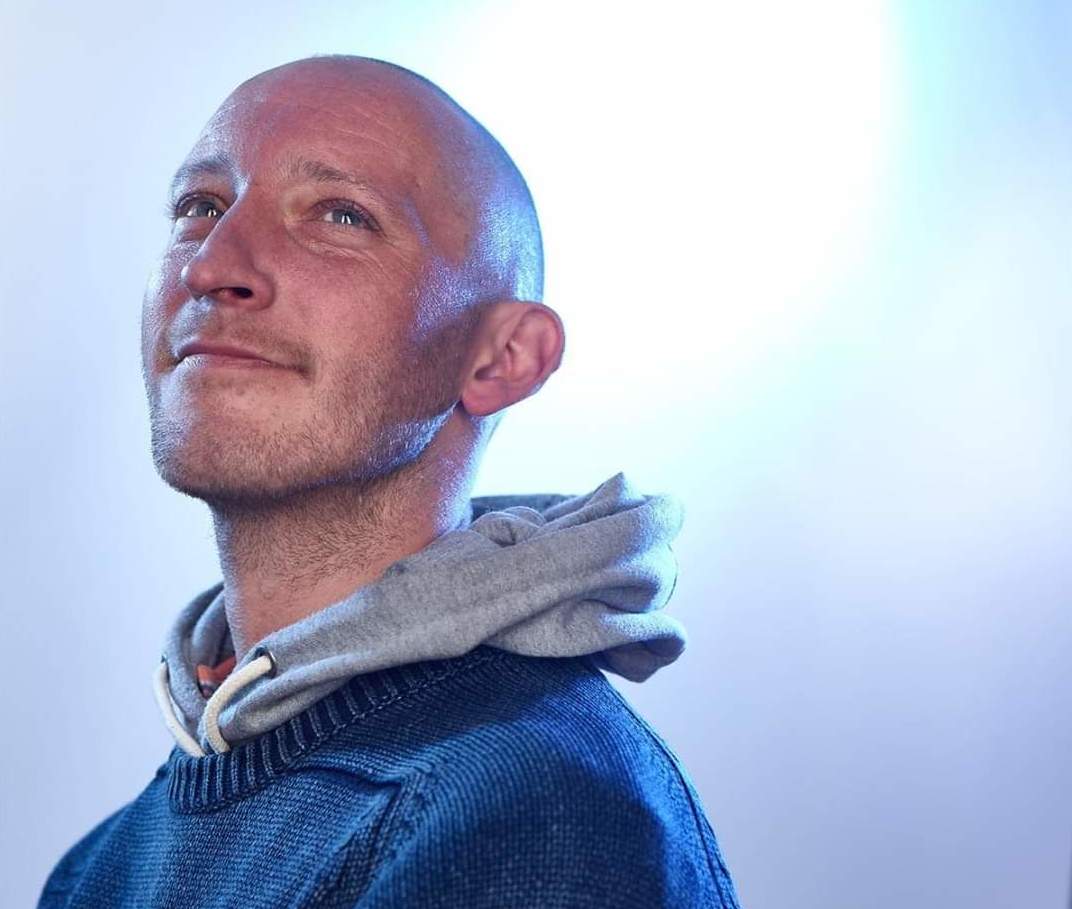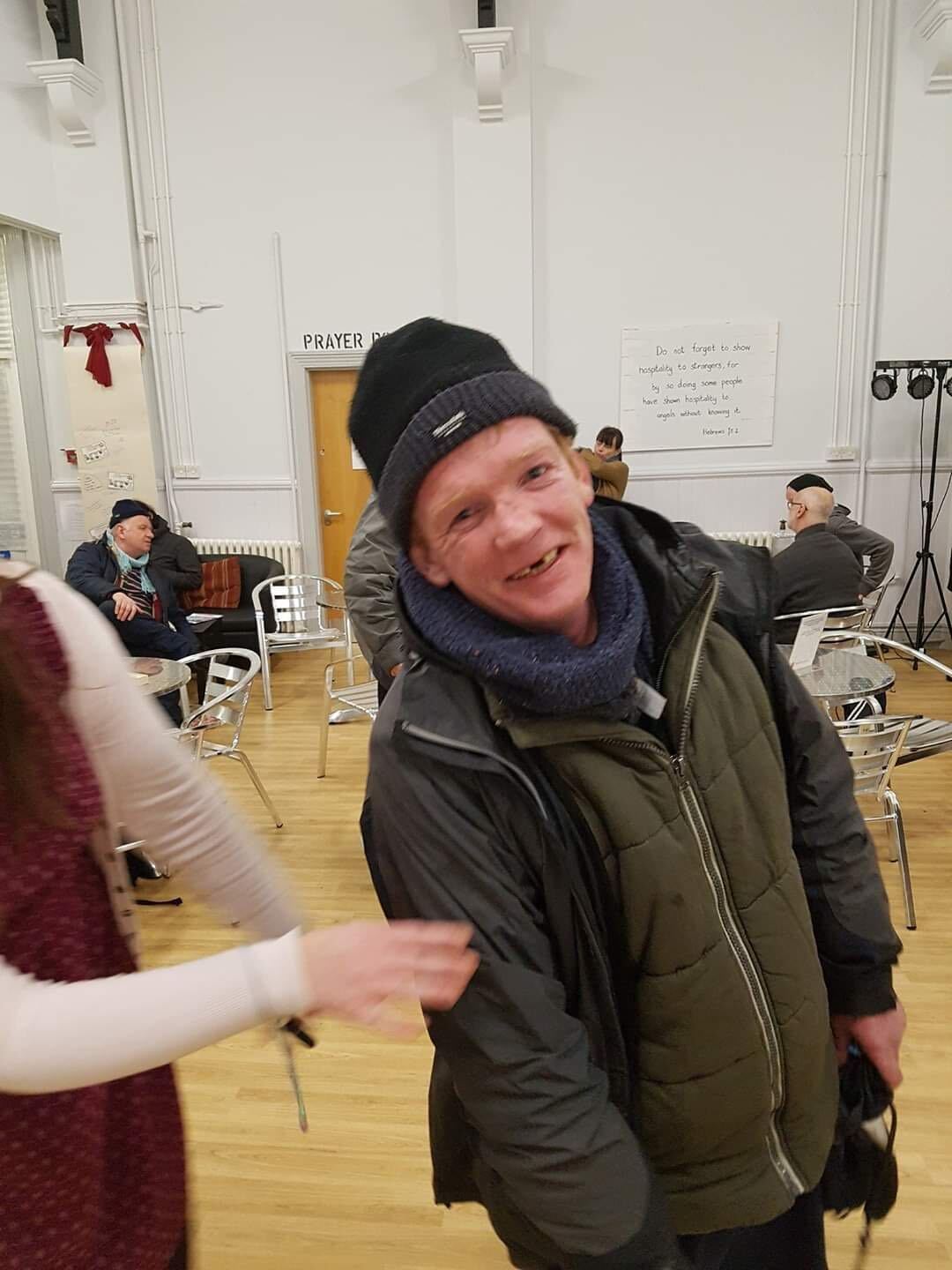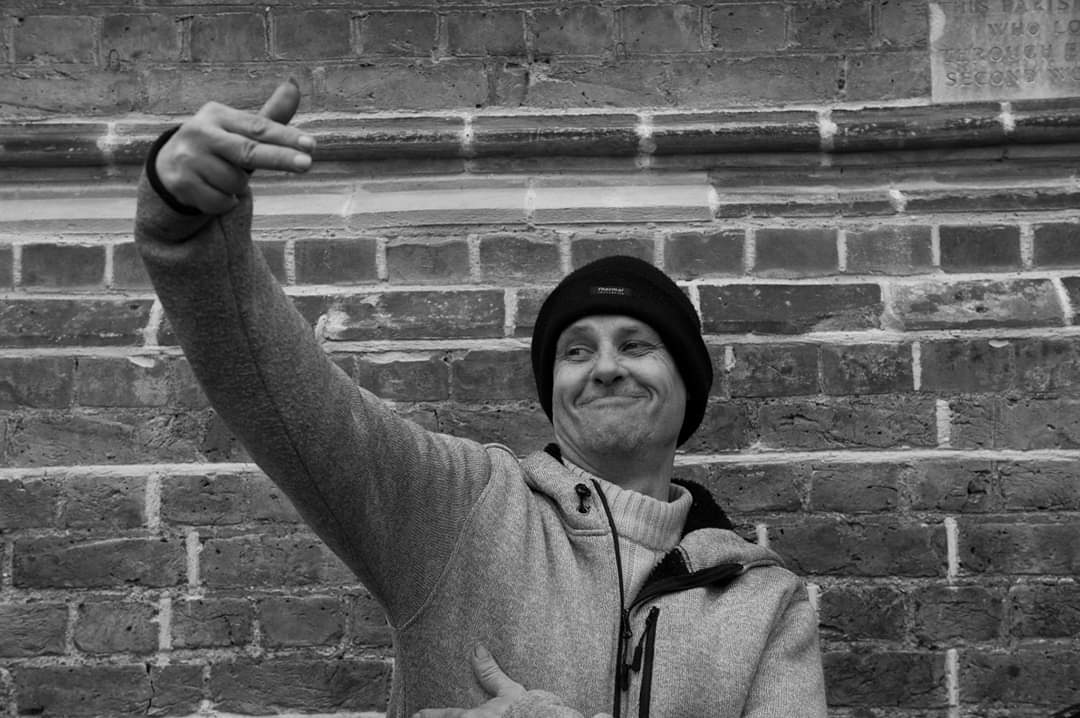Broken promises and nowhere to go: The reality of sleeping rough during coronavirus lockdown
‘We’re left in a lonely place. It’s all well and good for the government to say they’ve spent millions of pounds to get us off the streets. But they haven’t. We’re the forgotten ones,’ Soren Birch, homeless in Ealing, tells May Bulman


Tom was sitting in a Wetherspoon’s in Kingston, with a rucksack of everything he owns beside him, when he found out the UK was going into lockdown.
“A guy next to my table had his laptop and it came through on the news that as of that evening all the pubs and restaurants were going to be shut,” says the softly spoken 54-year-old. “At the time I laughed, and then within a few days I was thinking, how will I charge my phone? How will I wash?”
The Scotsman has been sleeping rough in London for five weeks after losing his job in construction due to an injury. While he initially found ways to manage – by going into drop-in centres to shower, sitting in pubs or cafes for warmth, sleeping on buses during the night – the pandemic has meant many of these facilities are now gone.
“A lot of the little cafes gradually started closing,” says Tom, speaking from behind a Tesco Express in west London. “Gradually everything was closing. Before, you had libraries and all the drop-in centres. There were so many options where you could at least have a wash and charge your phone. But all that is closed off for people now.
“I had been surfing the night buses. Just picking a long route and, as long as I still had money on my Oyster card, at least I had a roof over my head. But a lot of the bus drivers now are starting to get very nervous. Some of them are starting to refuse to let you back on because you’re obviously not a key worker.”
Tom now spends his days either tucked away in a park or aimlessly walking the streets of London. He occasionally lucks out and finds a public toilet he can use – in a supermarket or a tube station – but often he doesn’t have that luxury. He has managed to find a small number of soup kitchens still offering takeaway meals on certain nights of the week, but he’s worried about catching the virus and having to cope with it on the streets.
“I’m trying to keep away and be sensible. I’m not touching things if I can help it,” he says. “I try to keep away from people and they try to keep away from you as well.”
As someone who had never been homeless before, Tom describes what led to his current situation as a “perfect storm of events”. Before the pandemic, he had been sleeping on a friend’s sofa and had just found another building job. But, thanks to coronavirus, that construction project was put on hold, meaning he lost that job, and his friend, who has a lung condition, asked Tom to move out – leaving him with no option but to move onto the streets.
Tom is one of hundreds of rough sleepers who have not yet been offered housing during the coronavirus pandemic, despite a pledge by central government nearly three weeks ago that all homeless people on the streets would be placed into accommodation within two days. The Ministry of Housing, Communities and Local Government (MHCLG) wrote to local councils in England on 27 March saying they must find accommodation for all rough sleepers by that weekend as part of efforts to contain the spread of coronavirus, and announced £3.2m in funding to support this effort.
But while a considerable number of those rough sleeping have been rehoused across the country, an estimated 1,000 remain on the streets, according to Crisis. Many councils are failing to meet the demand – whether that is down to a lack of funding from central government or a failure to implement the processes needed to ensure anyone sleeping rough can be placed in accommodation.
Tom says he spoke to a member of staff at Ealing council two weeks ago and was told they would be in touch to arrange accommodation for him, but has heard nothing from them since. He has little hope that they will help: “They’ll deal with people with drugs, drink and mental health problems first. There’s nothing wrong with me, apart from the situation I’m in at the moment. I’m a single male with no physical or mental problems, so I’m not high up on anyone’s list.”
Andrew Mcleay, manager at Ealing Soup Kitchen, says he is in touch with around 20 rough sleepers in Ealing alone who have not yet been placed in accommodation. When he contacts the council to inform them that an individual is still on the streets, they assure him that they’ll let the outreach teams know. But he says he speaks to these homeless people days later and they’re still not housed.
“There are some people who have been homeless for a while, maybe two or three years. But the reason they want to be housed is because they are worried about dying on the street now,” says Andrew. “Normally they know they can survive on the streets, but now they can’t get much food, they can’t get any money. There’s no one around. And there’s this virus. It’s horrendous.”
As well as long-term rough sleepers, Andrew says he is already seeing people who are becoming homeless during the pandemic: “It’s a huge problem. Even though landlords are being told they can’t evict people, they have. There are at least two people I know of who have been kicked out of accommodation during the coronavirus period.”
Soren Birch, 37, who has been homeless in west London for three years, has not been housed yet despite approaching the council on Tuesday. He is spending his days walking aimlessly through the streets, where it is impossible to take measures to avoid contracting the virus and where he constantly gets moved on by police officers.

“I feel like we’ve been forgotten about and left for the police to deal with,” Soren tells The Independent as he roams the pavements. “I feel vulnerable. Myself and others in my situation are just left out on the streets with no help. I try to wash my hands if I can, but it’s hard. Even drinking fountains have been covered up. When you’re on the streets you get your hands dirty. You haven’t got a choice.”
Soren, who became homeless after he was evicted from his flat and developed addiction issues, says he believes that by saying they would house everyone, ministers made it appear that the issue was resolved – when that is far from the case.
“It’s all well and good on the news. Everybody in isolation in their homes with their bog rolls and their food and their TVs must think ‘Oh brilliant, this government has spent millions of pounds to help the homeless and get them off the streets.’ But they haven’t. We’re the forgotten ones,” says Soren.
“There’s nothing to do, nowhere to go. There’s no hope, no reassurance. We’re just left in a lonely place. It doesn’t help with mental heath or depression. Being in lockdown or isolation inside, you’ve got your own place with family or whatever, but when you’re isolating on the streets, it’s a totally different thing.
“The places that used to help us have closed down. Pretty much anything that was there before isn’t there now. There are soup kitchens still there, but everything else has gone. I don’t know where to go. I just want to be in somewhere safe.”

Many rough sleepers are confused about the way councils are deciding who to place into accommodation. Eamon Desmond, 45, was shocked when Ealing Council’s outreach team came to pick up his friend, Michael John Bates, 51, to take him to a hotel, but left Eamon and two other rough sleepers behind – despite their pleas to be housed.
The west Londoner, who has been rough sleeping for nearly three years after he fell homeless following the death of his partner, tells The Independent: “They picked him up and I was sat there too. I said what about me? But they just went away. They took my friend and put him in a hotel. There were four of us there that night and they only picked up one.
“I can’t understand why they’re saying they’re housing everyone when they aren’t. Things have got more difficult. Police are moving us on more; we can’t sit down; we can't go into any places anymore. I used to stay with friends, sometimes, but now I can’t. I walk around until 2am in the morning. It’s too quiet, you don’t know what’s happening, or what’s going to happen. I feel scared.”
His friend, Michael, 51, who has been homeless for nine months, was moved into a hotel last Friday after waiting for a call from Ealing Council for two weeks.
“They were supposed to phone me when they’re nearby, but they didn’t for weeks,” he says. “I phoned them back. I made it easy for them. I stayed at Ealing Common station waiting for them. But it took two weeks. It’s really horrible, the people who are homeless. The government isn’t really interested. They say one thing and do the opposite.”

The issues in Ealing reverberate across London and the rest of England. In London, as of Monday 6 April, the mayor’s office had housed 950 rough sleepers in hotels and around 60 more in other self-contained accommodation, while an unknown number of people had been housed in hotels by individual boroughs. But many remain on the streets of the capital.
The government refused to give The Independent any figures on the number of people who have so far been housed across the country, but charity Crisis estimates that around 1,000 people are still sleeping rough.
Matt Downie, director of policy and external affairs at Crisis, says this is largely due to the inconsistent approach taken by different councils and a lack of guidance from central government to ensure the process is being carried out properly.
Warning against a “complacency that somehow the job is done”, he says: “We’re picking up a lot of people unable to get food. The level of fear and hunger among people who are rough sleeping is really bad. We need a coordinated comprehensive national response versus years and years of localism and years of postcode lottery of who gets help in what way.”
Matt says some councils are continuing to apply the normal homelessness rules such as requiring people to prove their links to the local area and their immigration status. “We need a clear message from government saying these public health measures are a public health response and therefore the normal homelessness rules don’t apply,” he adds.
Alex Norris, a caseworker at London based charity Glass Door, echoes these concerns, saying the majority of councils in the capital are creating “unnecessary obstacles” to people being housed.
“What we’re coming up against is the majority of councils are saying people need to still go through the outreach team. If they can’t be found by the outreach team, we’re still being told people can make a homeless application, in which they need to provide a five-year address history, and go through the usual eligibility criteria,” says Alex.

“In some cases it’s an online form, you need an email address and, for people who might not have access to the internet, who don’t have time to sit and do an online form, who are older and might have learning disabilities, it’s just not ideal at the best of times, but especially now, during this pandemic.”
Worryingly, Alex says he has encountered a number of cases where the rough sleeper is showing symptoms of coronavirus and the council has said they cannot house them – so potentially very sick people have been left on the streets. He says local authorities have also told the charity they had faced difficulty finding hotels that would agree to accommodate rough sleepers, with some initially agreeing to help but, on finding out who the clientele was, pulling out.
Adding to the concerns, Alex says, is the anticipation that in the coming weeks there is likely to be a second wave of homelessness. There are many people who have recently lost their jobs and now have no source of income, who are already very vulnerably housed and may lose their homes.
“Sometimes they’re staying with friends or family, but that can’t continue, or they’re struggling to pay their rent, or they’re self-funding at a hostel, but now they don’t have money to extend that,” he says. “A lot of people are worried about becoming homeless in the next week or so.”
Although ministers have provided £3.2m to assist local authorities in housing rough sleepers, the Local Government Association (LGA), which represents councils in England, says this is not sufficient for such a huge undertaking.
Cllr David Renard, LGA housing spokesman, said: “Councils have put in a monumental effort to get rough sleepers and homeless people off the street since the coronavirus outbreak. They have now managed to find housing for the vast majority of people sleeping rough. But they need additional support and funding from government to help those that are still struggling to source accommodation, hire additional staff, and support the people they are accommodating – including with essential basics such as food.”
An Ealing Council spokesperson said it was “committed to working alongside the voluntary sector to protect the borough’s rough sleepers by offering them somewhere safe to stay during the coronavirus pandemic and access to appropriate food and support”.
But the spokesperson added: “The challenge of finding accommodation at very short notice for all the borough’s rough sleepers, many of whom are extremely vulnerable, is immense.
“We are contacting the charity in question to listen to any concerns they have and clarify how they can refer people. In the last couple of weeks, we’ve housed almost 150 people who have told us they are rough sleepers, following the government’s commitment to house rough sleepers during the coronavirus." The spokesperson continued: "There is no reason for anyone to sleep rough and help is available. We urge any rough sleeper or charity working with rough sleepers to contact Streetlink on 0300 500 0914.”
A government spokesperson said the “vast majority” of rough sleepers, known to local authorities, had been made offers of safe accommodation, adding: “This is the result of a collaborative effort across government and with local authorities, health providers and charities – backed by £1.6bn of government funding to help councils respond to coronavirus, including support for the most vulnerable.”
Join our commenting forum
Join thought-provoking conversations, follow other Independent readers and see their replies
Comments
Bookmark popover
Removed from bookmarks